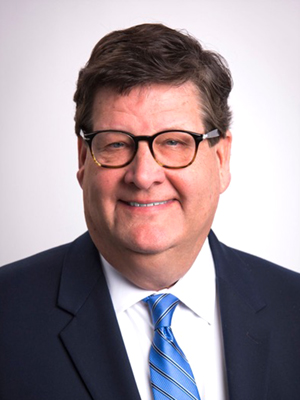By Tony Bennett
The Texas economy is strong because policymakers trust employers to run their businesses in ways that grow jobs and maintain a productive workforce. A healthy workforce results in a more productive workforce, and the ongoing pandemic reminds us how quickly illness can impact the global economy — resulting in slowed manufacturing, the inability to get goods to consumers, job losses and lost tax revenue.
Texas policymakers must allow Texas employers to decide their own best practices to maintain workplace health and safety. To do otherwise would establish a concerning precedent of state interference into determining what workforce health and safety policies are best, without regard for a particular industry’s needs or the differences in manufacturing work environments.
Texas employers should have the ability to decide whether vaccines or other safety measures make sense for their workforce — and they don’t need federal or state mandates to make that decision. There are employers for whom vaccines make sense for their workforce and barriers to vaccine access for those employees should be eliminated. For employers who decide that other safety measures are appropriate for their workplace, these options should be available. Any one-size-fits-all approach to workplace safety has the potential to harm the economy.
Currently, Texas employers are prohibited from requiring vaccines for employees or consumers who object based on undefined “reasons of conscience,” which creates uncertainty for employers and an inability to effectively participate in any complaint process.
Policies that compromise employers’ ability to effectively run their businesses come at a steep cost. Just as there would be a tremendous cost of complying with government mandates to vaccinate an entire workforce, there is a hefty economic cost associated with prohibiting adequate workplace health and safety measures for employers for whom COVID-19 safety protocols make sense.
Texas economist Ray Perryman said, “Preventable decreases in output (gross state product) due to the inadequate reaction to COVID-19 total $13.4 billion on an annualized basis. Employment losses were found to reach almost 72,000 jobs…the typical worker who is unable to return to work due to the current situation results in a loss of $66,552 in output for their employer and $186,755 to the overall state economy on an annualized basis. Economic activity generates tax receipts, and the failure to implement meaningful measures leads to notable losses in state revenues of $339.1 million on an annualized basis.”
Embracing pro-growth policies, including employer-determined health and safety policies for the Texas manufacturing sector, matters to communities and our economy as a whole. More than 880,000 Texans have a job in manufacturing, earning more than $90,100 a year, nearly 50 percent higher than other non-farm workers. On average, each manufacturing job created provides five additional jobs. In all, manufacturers in Texas account for more than 13 percent of the total output in the state — more than $241 billion in 2019.
People looking for work have options to consider jobs that align with their personal preferences. There are more job openings in the United States than there are people looking for work. According to the National Association of Manufacturers, there were more than 8.7 million unemployed Americans in July, which translates to 0.80 unemployed workers for every one job opening in the U.S. economy. Non-farm business job openings rose to 10,934,000 in July, a new record. In the manufacturing sector, job openings jumped to 889,000 in July, another record high.
Every one of these employers needs the flexibility to determine how best to ensure the safety and health of their workforce. The ability to run a business without overly intrusive government interference is the mainstay of the Texas economy. Now is the time to stay the course on the principles that have made Texas an economic powerhouse.
Tony Bennett is the president and CEO of the Texas Association of Manufacturers.




